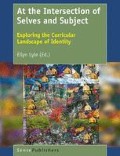Abstract
This chapter uses an ethnographic study as hermeneutic window into an interpersonal field of expectations colliding over “what to do” with the gifted. Our theorising rides upon a six-month participant-observer ethnographic inquiry, including follow up interviews with teachers, parents, teaching assistants, and administrators, in a school for the gifted, where the first author assisted in eight middle-school (Gr. 5–9) mathematics classrooms.
Access this chapter
Tax calculation will be finalised at checkout
Purchases are for personal use only
Preview
Unable to display preview. Download preview PDF.
References
Ackerman, C. M. (1997). Identifying gifted adolescents using personality characteristics: Dabrowki’s overexcitabilities. Roeper Review, 19(4), 229–236.
Ambrose, D., Sternberg, R., & Sriraman, B., (2013). Considering the effects of dogmatism on giftedness and talent development. In D. Ambrose, R. Sternberg, & B. Sriraman (Eds.), Confronting dogmatism in gifted education (pp. 3–10). Florence, USA: Routledge.
Benjamin, J. (1988). The bonds of love: Psychoanalysis, feminism, and the problem of domination. New York, NY: Pantheon Books.
Benjamin, J. (1995). Like subjects, love objects: Essays on recognition and sexual difference. New Haven, CT: Yale University Press.
Benjamin, J. (2004). Beyond doer and done to: An intersubjective view of thirdness. Psychoanalytic Quarterly, LXXIIIXI, 5–46.
Cohen, L. (2006). Conceptual foundations for gifted education: Stock-taking. Roeper Review, 28(2), 91–110.
Colvin, G. (2008). Talent is overrated: What really separates world-class performers from everybody else. New York, NY: Penguin Group.
Dai, Y., Swanson, J., & Cheng, H. (2011). State of research on giftedness and gifted education: A survey of empirical studies published during 1998–2010. Gifted Child Quarterly, 55(2), 126–138.
Daniel, S., & Piechowski, M. (2009). (Eds.). Living with intensity: Understanding the sensitivity, excitability, and emotional development of gifted children, adolescents, and adults. Tucson, AZ: Great Potential Press.
Juarrero, A. (2002). Dynamics in action: Intentional behavior as a complex system. Cambridge, MA: MIT Press.
Horowitz, M. (2014). Identity and the new psychoanalytic explorations of self-organization. New York, NY: Routledge.
Maturana, H., & Varela, F. (1972). Autopoiesis and cognition: The realization of the living. Dordrecht, NL: Reidel.
Mitchell, S. (1988). Relational concepts in psychoanalysis: An integration. Cambridge, MA: Harvard University Press.
Mitchell, S., & Aron, L. (1999). Preface. Relational psychoanalysis: The emergence of a tradition (pp. ix–xx). Hillsdale, NJ: Analytic Press.
Neihart, M. (1999). The impact of giftedness on psychological well-being: What does the empirical literature say? Roeper Review, 22(1), 10–17.
Neville, C., Piechowski, M., & Tolan, S. (2013). (Eds.) Off the charts: Asynchrony and the gifted child. Unionville, NY: Royal Fireworks Press.
Peterson, J. (2015). School counselors and gifted kids: Respecting both cognitive and affective. Journal of Counseling & Development, 93, 153–162.
Pfeiffer, S., & Stocking, V. (2000). Vulnerabilities of academically gifted students. Special Services in the Schools, 16, 83–93. doi:10.1300/J008v16n01_06
Reis, S., Baum, S., & Burke, E. (2014). An operational definition of twice-exceptional learners: Implications and applications. Gifted Child Quarterly, 58(3), 217–230.
Roeper, A. (1982). How the gifted cope with their emotions. Roeper Review, 5(2), 21–24.
Siegle, D. (2016). Research update from the national center for research on gifted education. Retrieved from http://ncrge.uconn.edu
Silverman, L. (1998). Roeper Review, 20(3), 204–210.
Silverman, L. (2013). Giftedness 101. New York, NY: Springer.
Sternberg, R. (2013). Dogmatism and giftedness: Major themes, In D. Ambrose, R. Sternberg, & B. Sriraman, (Eds.), Confronting dogmatism in gifted education (pp. 207–217). Florence, USA: Routledge.
The Columbus Group. (1991). Definition of giftedness: the Institute for the Study of Advanced Development. Retrieved from http://www.gifteddevelopment.com/isad/columbus-group
Tomlinson, C. (1997). Quality curriculum and instruction for highly able students. Theory into Practice, 44(2), 160–166.
Editor information
Editors and Affiliations
Rights and permissions
Copyright information
© 2017 Sense Publishers
About this chapter
Cite this chapter
D’Amour, L., Markides, J. (2017). Identities of Exceptionality. In: Lyle, E. (eds) At the Intersection of Selves and Subject. Bold Visions in Educational Research. SensePublishers, Rotterdam. https://doi.org/10.1007/978-94-6351-113-1_14
Download citation
DOI: https://doi.org/10.1007/978-94-6351-113-1_14
Publisher Name: SensePublishers, Rotterdam
Online ISBN: 978-94-6351-113-1
eBook Packages: EducationEducation (R0)

